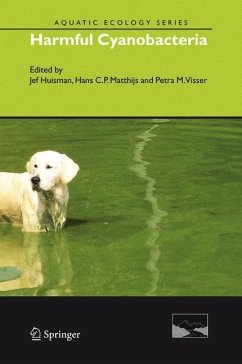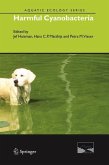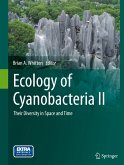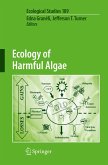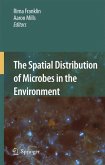Several cyanobacterial species can produce powerful toxins that provide a serious threat for water quality, other aquatic organisms, and human health. These harmful cyanobacteria are especially prominent in freshwater ecosystems, and are a major concern for water managers.
From a scientific perspective, there are many recent advances in this research area:
- Owing to the scientific revolution in genomics, new molecular techniques have been developed that enable the detection of toxic cyanobacteria at a very early stage.
- New laboratory culture techniques have enabled eco-physiological studies of toxin production at a detailed scale that was beyond reach until recently.
- Remote sensing of freshwater cyanobacteria is a rapidly expanding field, owing to the increased spectral resolution of airborne data.
- New computational techniques have led to advanced models on the population dynamics of cyanobacteria.
From a management perspective, recognition of the toxins produced by harmful cyanobacteria has recently led to new environmental policies with respect to toxic cyanobacteria in many western countries.
The purpose of this work is to provide an up-to-date overview of the advances in our knowledge of harmful cyanobacteria. The work is directed towards graduate students and scientists in aquatic microbiology, aquatic ecology, environmental toxicology, and water management, and academic professionals in water management and environmental policy.
"This is an outstanding volume that should be a 'must-see' reference for all scientists and environmental professionals who are interested in cyanobacterial ecology and water quality management." Val H. Smith, University of Kansas, USA
Hinweis: Dieser Artikel kann nur an eine deutsche Lieferadresse ausgeliefert werden.
From a scientific perspective, there are many recent advances in this research area:
- Owing to the scientific revolution in genomics, new molecular techniques have been developed that enable the detection of toxic cyanobacteria at a very early stage.
- New laboratory culture techniques have enabled eco-physiological studies of toxin production at a detailed scale that was beyond reach until recently.
- Remote sensing of freshwater cyanobacteria is a rapidly expanding field, owing to the increased spectral resolution of airborne data.
- New computational techniques have led to advanced models on the population dynamics of cyanobacteria.
From a management perspective, recognition of the toxins produced by harmful cyanobacteria has recently led to new environmental policies with respect to toxic cyanobacteria in many western countries.
The purpose of this work is to provide an up-to-date overview of the advances in our knowledge of harmful cyanobacteria. The work is directed towards graduate students and scientists in aquatic microbiology, aquatic ecology, environmental toxicology, and water management, and academic professionals in water management and environmental policy.
"This is an outstanding volume that should be a 'must-see' reference for all scientists and environmental professionals who are interested in cyanobacterial ecology and water quality management." Val H. Smith, University of Kansas, USA
Hinweis: Dieser Artikel kann nur an eine deutsche Lieferadresse ausgeliefert werden.
"This is an outstanding volume that should be a 'must-see' reference for all scientists and environmental professionals who are interested in cyanobacterial ecology and water quality management."
(Val H. Smith, University of Kansas, USA)
"The book is a welcome addition to the body of international studies on harmful cyanobacteria and demonstrates their widespread occurrence and importance as agents of water-based disease. The book will have a general appeal but especially for those who have to deal with issues of toxic cyanobacteria and are interested in a better understanding of the topic. It will also be appreciated by the more serious researcher wishing to keep up with this subject in order to develop new ideas and directions for their own research into Harmful Cyanobacteria."
(Wayne Carmichael, Wright State University, Ohio, USA)
(Val H. Smith, University of Kansas, USA)
"The book is a welcome addition to the body of international studies on harmful cyanobacteria and demonstrates their widespread occurrence and importance as agents of water-based disease. The book will have a general appeal but especially for those who have to deal with issues of toxic cyanobacteria and are interested in a better understanding of the topic. It will also be appreciated by the more serious researcher wishing to keep up with this subject in order to develop new ideas and directions for their own research into Harmful Cyanobacteria."
(Wayne Carmichael, Wright State University, Ohio, USA)

